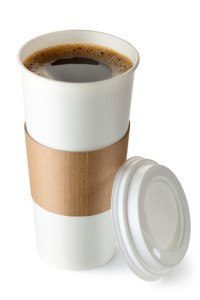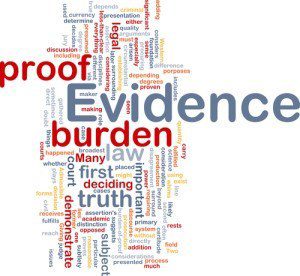 As a Florida personal injury attorney, I know many people across the country were outraged when the jury awarded Ms. Liebeck 2.9 million dollars in the McDonald’s Hot Coffee case. To understand the good reasons for the verdict, one must understand the types of damages available in personal injury cases, including burn injury cases, and the reasons for those damages. (I previously discussed the facts of the case in Part One of this article.)
As a Florida personal injury attorney, I know many people across the country were outraged when the jury awarded Ms. Liebeck 2.9 million dollars in the McDonald’s Hot Coffee case. To understand the good reasons for the verdict, one must understand the types of damages available in personal injury cases, including burn injury cases, and the reasons for those damages. (I previously discussed the facts of the case in Part One of this article.)
McDonald’s Hot Coffee Damages: First Compensate For Actual Losses
The first type of damages are compensatory damages. Those attempt to compensate the plaintiff for three important areas of potential loss, including: past and future medical expenses, past and future lost wages, and pain and suffering. According to news reports, the jury in the hot coffee case decided that Ms. Liebeck’s compensatory damages amounted to $200,000, but reduced the compensatory damage award to $160K because they found that Ms. Liebeck was 20% at fault because she spilled the coffee.
Next Punish Defendant In An Attempt To Stop Them
The second relatively rare but very important type of damages are punitive damages. Although the laws vary by state, and this case took place in New Mexico, the general purpose of punitive damages in all states is to punish the defendant and therefore deter future bad conduct. Typically judges only allow juries to consider this special category of damages when there is evidence that the defendant might be guilty of very bad behavior, such as recklessness or gross negligence (those are worse than negligence, which is failing to behave as a reasonable person).
You Better Have Good Evidence
 Additionally, at least in Florida, plaintiffs must prove any punitive damages by way of the high evidentiary standard of “clear and convincing evidence.” (This evidentiary burden of proof is much higher than a “preponderance of the evidence,” or more than 50% proof, which is the burden of proof in typical civil lawsuits.) In other words, the jury must agree that there is “clear and convince evidence” of recklessness or gross negligence. In contrast, in normal civil cases, the jury must only agree that a “preponderance of the evidence” proves negligence. And juries cannot even hear evidence regarding punitive damages unless and until the plaintiff proves to the judge in a separate pre-trial hearing (outside the presence of the jury) that there is sufficient evidence to warrant presenting the claim for punitive damages to the jury. These are all significant hurdles to any plaintiff receiving punitive damages.
Additionally, at least in Florida, plaintiffs must prove any punitive damages by way of the high evidentiary standard of “clear and convincing evidence.” (This evidentiary burden of proof is much higher than a “preponderance of the evidence,” or more than 50% proof, which is the burden of proof in typical civil lawsuits.) In other words, the jury must agree that there is “clear and convince evidence” of recklessness or gross negligence. In contrast, in normal civil cases, the jury must only agree that a “preponderance of the evidence” proves negligence. And juries cannot even hear evidence regarding punitive damages unless and until the plaintiff proves to the judge in a separate pre-trial hearing (outside the presence of the jury) that there is sufficient evidence to warrant presenting the claim for punitive damages to the jury. These are all significant hurdles to any plaintiff receiving punitive damages.
Sometimes Money Is The Only Way To Get Someone To Listen
 Once the need for them is proven, the important purpose of punitive damages is to punish and therefore deter the defendant from repeating the bad behavior in the future (which they might do, for example, if they decide, after performing a cost / benefit analysis, that the cost of paying any settlements or verdicts for injured people is less than the financial benefit from whatever unsafe action they want to take). Very importantly, the only time a plaintiff can share evidence about the defendant’s financial worth with the jury is when / if the judge allows the plaintiff to seek punitive damages. In cases not involving punitive damages, the jury never learns the defendant’s financial status. The idea of allowing this evidence during any case seeking punitive damages is that the jury needs to know the defendant’s net worth to effectively punish the defendant. The question in those cases is what amount would be needed to get the defendant’s attention and stop them from continuing the bad behavior. In this way, plaintiffs’ attorneys can change corporate bad behavior and therefore protect future consumers of potentially dangerous products or corporate decisions.
Once the need for them is proven, the important purpose of punitive damages is to punish and therefore deter the defendant from repeating the bad behavior in the future (which they might do, for example, if they decide, after performing a cost / benefit analysis, that the cost of paying any settlements or verdicts for injured people is less than the financial benefit from whatever unsafe action they want to take). Very importantly, the only time a plaintiff can share evidence about the defendant’s financial worth with the jury is when / if the judge allows the plaintiff to seek punitive damages. In cases not involving punitive damages, the jury never learns the defendant’s financial status. The idea of allowing this evidence during any case seeking punitive damages is that the jury needs to know the defendant’s net worth to effectively punish the defendant. The question in those cases is what amount would be needed to get the defendant’s attention and stop them from continuing the bad behavior. In this way, plaintiffs’ attorneys can change corporate bad behavior and therefore protect future consumers of potentially dangerous products or corporate decisions.
Should A Jury Ignore Harmful Corporate Behavior?
 As you read in part one of this article, according to news reports, the jury heard lots of very damning evidence that McDonald’s had received approximately 700 complaints about injuries caused by their hot coffee over the preceding ten years. So McDonald’s knew they were burning their customers. They also admitted that they knew the customers did not understand the extent of the burn injuries that could result from spilling the coffee. In other words, while their customers knew they might spill hot coffee, they did not realize that they could receive 3rd degree burns in less than 2 seconds. McDonald’s corporate representatives also amazingly testified that they did not intend to lower the temperature of their coffee in the future. In that situation, the jury was permitted to hear the amount of profit that McDonald’s made from their coffee sales, which was more than 1.3 million dollars per day.
As you read in part one of this article, according to news reports, the jury heard lots of very damning evidence that McDonald’s had received approximately 700 complaints about injuries caused by their hot coffee over the preceding ten years. So McDonald’s knew they were burning their customers. They also admitted that they knew the customers did not understand the extent of the burn injuries that could result from spilling the coffee. In other words, while their customers knew they might spill hot coffee, they did not realize that they could receive 3rd degree burns in less than 2 seconds. McDonald’s corporate representatives also amazingly testified that they did not intend to lower the temperature of their coffee in the future. In that situation, the jury was permitted to hear the amount of profit that McDonald’s made from their coffee sales, which was more than 1.3 million dollars per day.
A Lower Amount Would Have Had Little Impact On McDonald’s
The reason juries are permitted to hear about the defendant’s net worth in cases potentially involving punitive damages is because varying amounts are required to persuade defendants with different financial capabilities to stop behavior that might harm consumers in the future. Therefore, had this coffee been served by a small mom and pop cafe, the punitive damage award would have been much lower and/or most likely nonexistent.
The Actual Jury Verdict In Ms. Liebeck’s Case
Ultimately, according to news reports, the jury decided that Ms. Liebeck had $200,000 in compensatory damages (actual losses). This amount was reduced to $160,000 because the jury found that she was 20% at fault for spilling the coffee. Additionally, to punish, and therefore hopefully prevent McDonald’s from serving such scalding hot coffee to future customers, the jury also awarded 2.7 million in punitive damages, which equaled 2 days’ worth of revenue from hot coffee sales. After the verdict, the judge reduced the punitive damages award to $480,000 and the parties settled the case for an unknown amount on appeal. Some news reports have estimated the settlement amount was around $500,000. (Amazingly, Ms. Liebeck had first offered to settle the case for the amount of her actual and anticipated expenses, or $20,000, but McDonald’s only offered $800.)
Disclaimer: All of the facts about the McDonald’s Hot Coffee case in this article were taken from available news reports.
- Where Do I Accept Cases
- What Is A Personal Injury Or Accident Case?
- What Types Of Injuries Might Be The Basis Of A Lawsuit?
Related Posts:
McDonald’s Hot Coffee Case Facts: Part One
Why Personal Injury Attorneys Must Reject Frivolous Lawsuits
The Dangers Of Hiring A Settlement Mill Injury Law Firm
APR
2014

About the Author:
Tina Willis is a serious injury, accident & death lawyer, based in Orlando, Florida, although she accepts cases throughout the states of Florida and Georgia. Ms. Willis has won many prestigious industry awards, best personal injury & car accident lawyer awards, and recovered multi-millions for her clients. She was formerly a law professor, and graduated second in her law school class back in 1997. She formerly worked for some of the largest defense firms in the country, often on multi-million dollar cases. She used to represent large corporations & insurance companies, so she knows their playbook. We are very focused on the highest quality client service, and maximizing the value of every case we handle. We vigorously prosecute serious injury and death cases caused by auto accidents, semi-truck accidents, slip and fall accidents, products & premises liability cases, as well as medical malpractice.